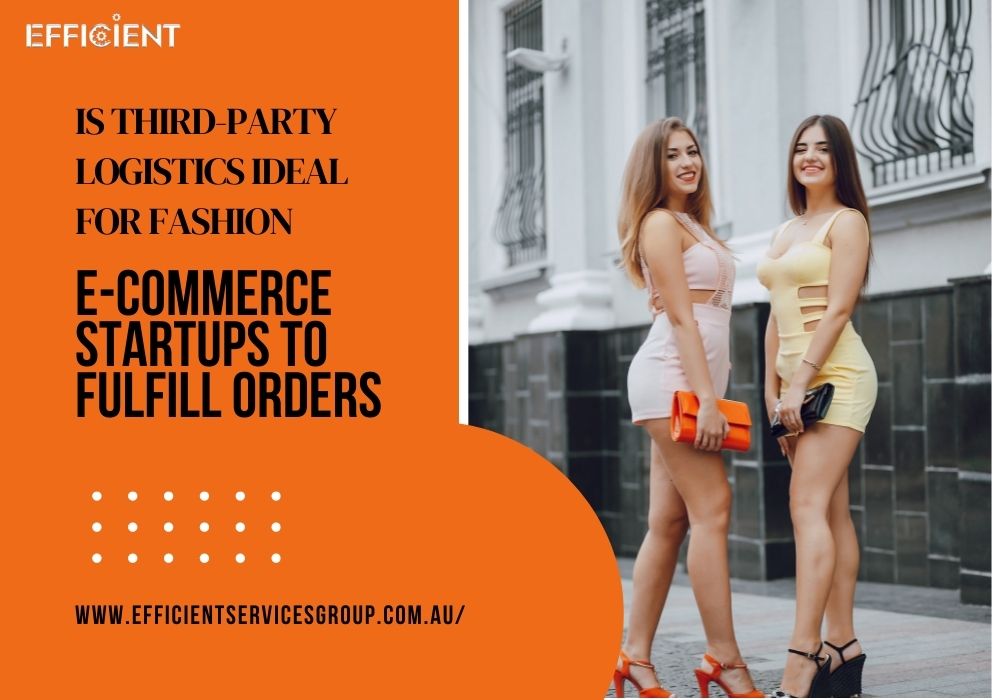Is Third-Party Logistics Ideal for Fashion E-Commerce Startups to Fulfill Orders?
When we look at successful online fashion brands, we find them swift and effortless in their services. But there is a highly complex supply chain operating at the backdrop of these companies, striving hard to keep them up and running.
Let’s understand it with the help of a hypothetical order life cycle to get an idea. Imagine you're in Australia, and you bought a dress from a Chinese company online:
●
A factory in southern China
manufactures the outfit.
●
The manufacturer packs and loads the outfit onto a truck.
●
The truck reaches the vessel at the Chinese port.
●
The ship then makes its way to the Australian
port.
●
The suppliers take and transfer the dress from
the ship to a vehicle or a train.
●
A wholesaler on the way receives the parcel and
stores the remaining clothing items in a warehouse or distribution centre.
●
The delivery agent then dispatches and delivers
the parcel to wherever you stay in Australia from the distribution centre.
The entire supply chain is often challenging and takes in a lot of effort and streamlining. In this case, the fashion3PL warehouse facility comes to the rescue.
What is 3PL Logistics?
Third-party
logistics or 3PL refers to a firm outsourcing some of its logistics needs to a
third-party operator. 3PL firms manage all or some components of your supply
chain like imports, exports, fashion
warehousing and distribution.
The
3PL supplier can expand and adjust these services to meet customer requirements
based on market conditions, product and material demands, and package delivery
specifications.
Outsourcing these operations to a third-party logistics supplier provides a range of cost-cutting and productivity advantages. Let's have a look at it in more detail:
Start-up and 3PL:
We
understand what it's like to be a start-up. You have a few people working on
several projects from product sourcing, manufacturing, web designing, content
creation and digital marketing to accounting, fashion warehousing and distribution. If that wasn't draining
enough, the same would then employees handle logistics and offer e-commerce fulfilment services whenever
a new order comes in.
Since
these employees may or may not have prior expertise, there will undoubtedly be
some costly errors resulting in a rapid decline in your customer satisfaction
graph. With this, your hard work in acquiring a new customer will wash away.
Logistics
might save or destroy an e-commerce company. You'll need significant logistical
expertise to deliver the packages to your clients daily, undamaged and on time.
There is always a never-ending struggle to match consumer expectations while
optimising productivity and minimising unnecessary costs and wastage.
As a result, many start-ups outsource their order fulfilment and use fashion 3PL warehouse services to address the difficulties.
Scalability Advantages While Working with a 3PL:
3PL
provides you with an opportunity to scale up and down the operations based on
your order volume because you're rarely more than 10% of their entire business.
3PL companies have significantly large fashion 3PL services that mean lower
costs per square foot and multiple locations from which they can transport your
products faster.
3PL allows you to concentrate on your company's core strengths and abilities while the professionals handle the entire logistics such as order fulfilment, fashion warehousing and distribution with all of the necessary resources.
When to Consider a Third-Party Logistic?
You
must work with an appropriate third-party logistics provider as it enables you
to share some of their efficiency while allowing you to grow at your own pace. However,
as a start-up, you must figure out your strengths and understand your long-term
competitive advantages. Many start-ups outsource their e-commerce fulfilment services due to a variety of cost and
service-related issues such as:
●
Insufficient
warehousing facility:
Unable to purchase warehouse space due to a lack of
infrastructure and capital.
●
Establish new markets:
Partner with a 3PL if you're getting a lot of sales from a
newly acquired market far from your warehouse.
●
Different time
zones:
Trouble managing inventory and orders, especially when you're
not in the same time zone as your customers and have to send a package right
away after they place an order.
●
International
orders:
Your targeted audience is entirely outside your country. For example, you can manufacture your products in Australia and ship them to your fulfilment centre in the United States. Moving to more suitable geographic areas results in significant cost savings and minimises travel time.
Final Thoughts:
Consider
3PL as a business support system. Hiring skilled staff to handle your logistics
in-house should be your long-term goal. On the other hand, working with 3PL is
an excellent way to focus on what you do best in the early stages of your firm
while 3PL handles order fulfilment.
We,
EFFICIENT
SERVICES GROUP, understand when,
where, what, and how to address each scenario within the distribution and
supply chain that you may encounter, allowing you to stay ahead of the
competition.

Comments
Post a Comment